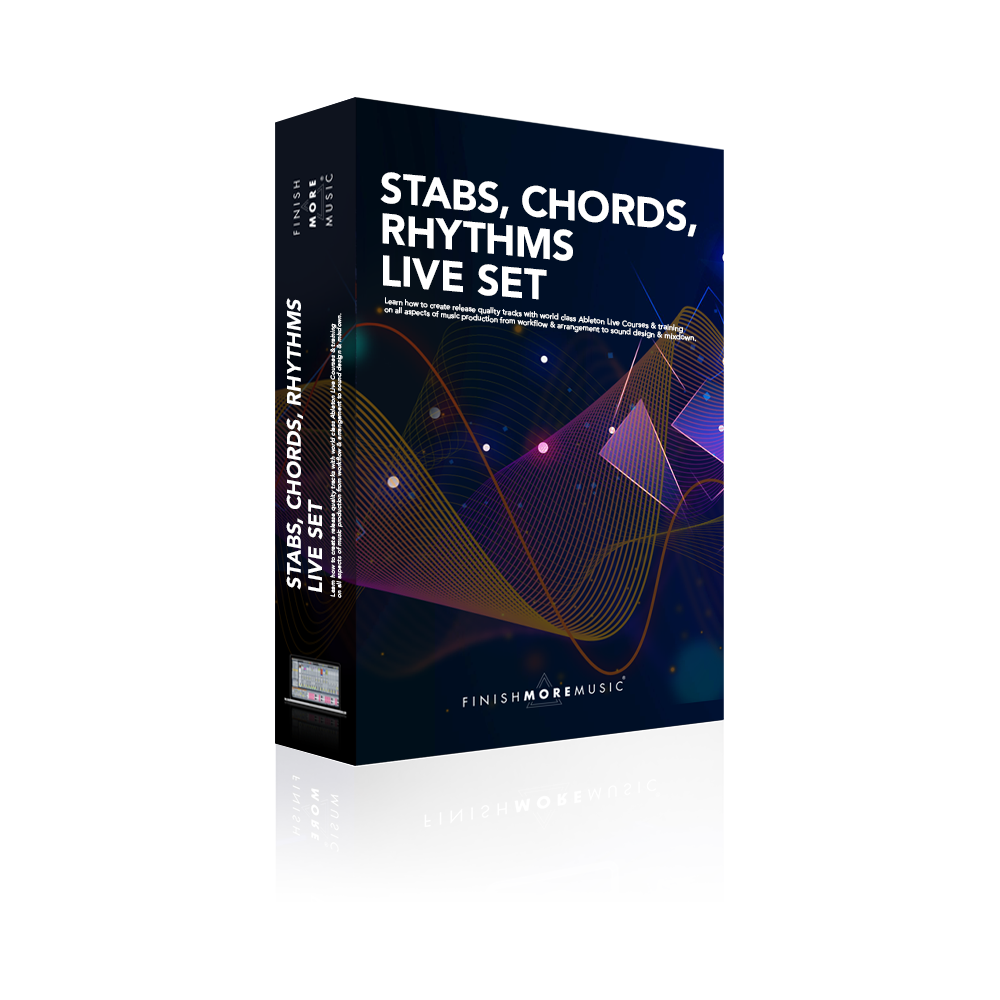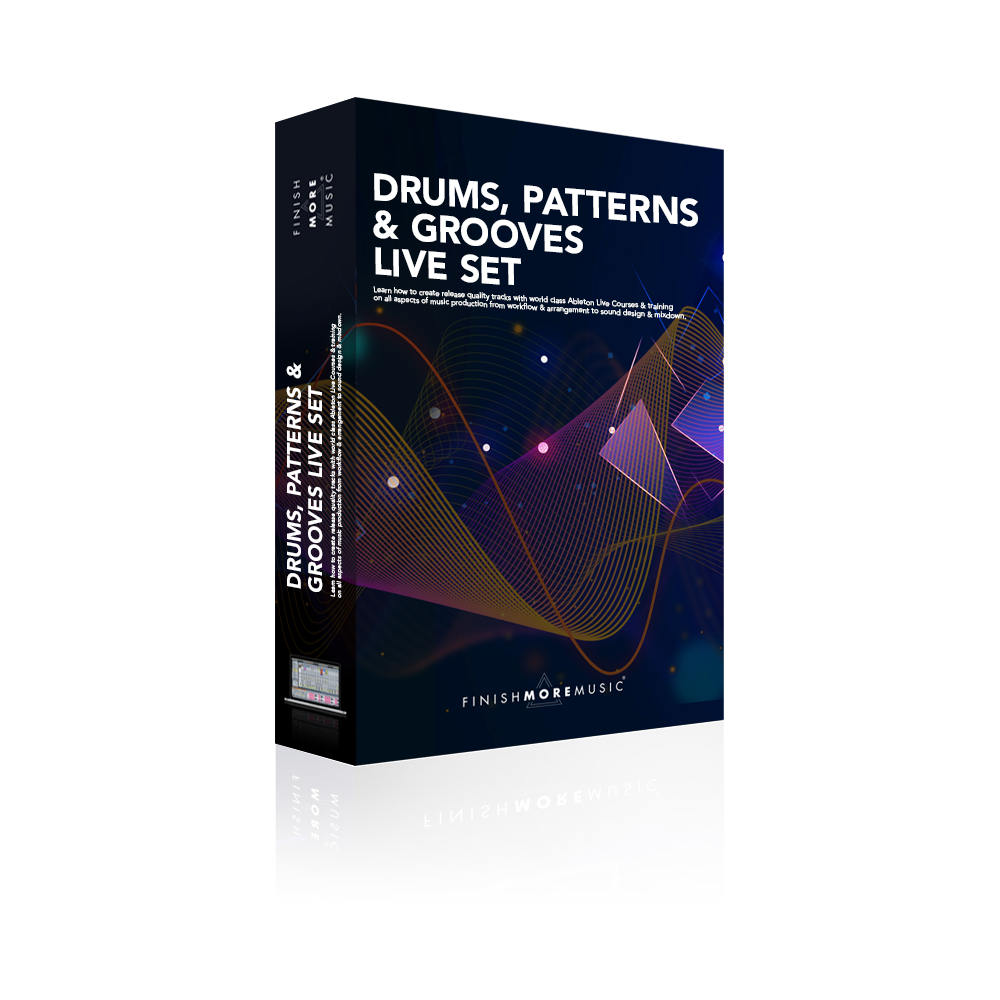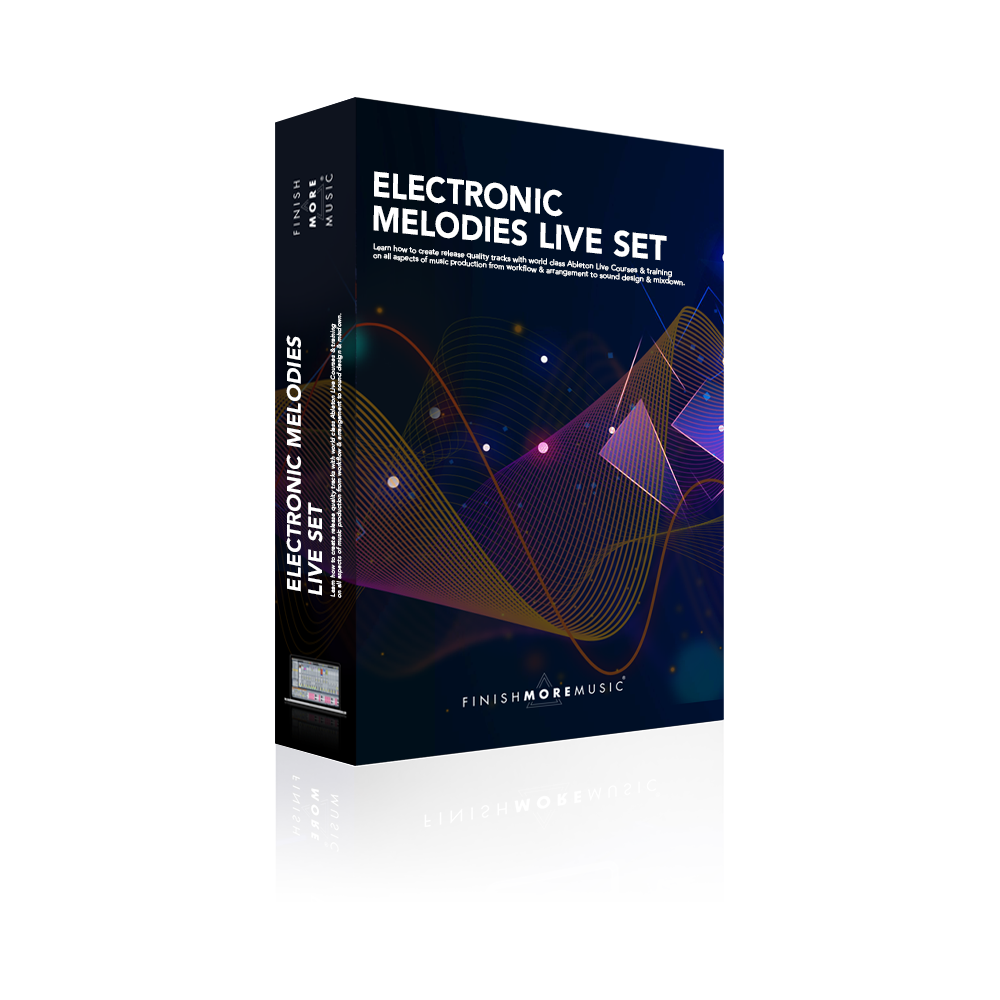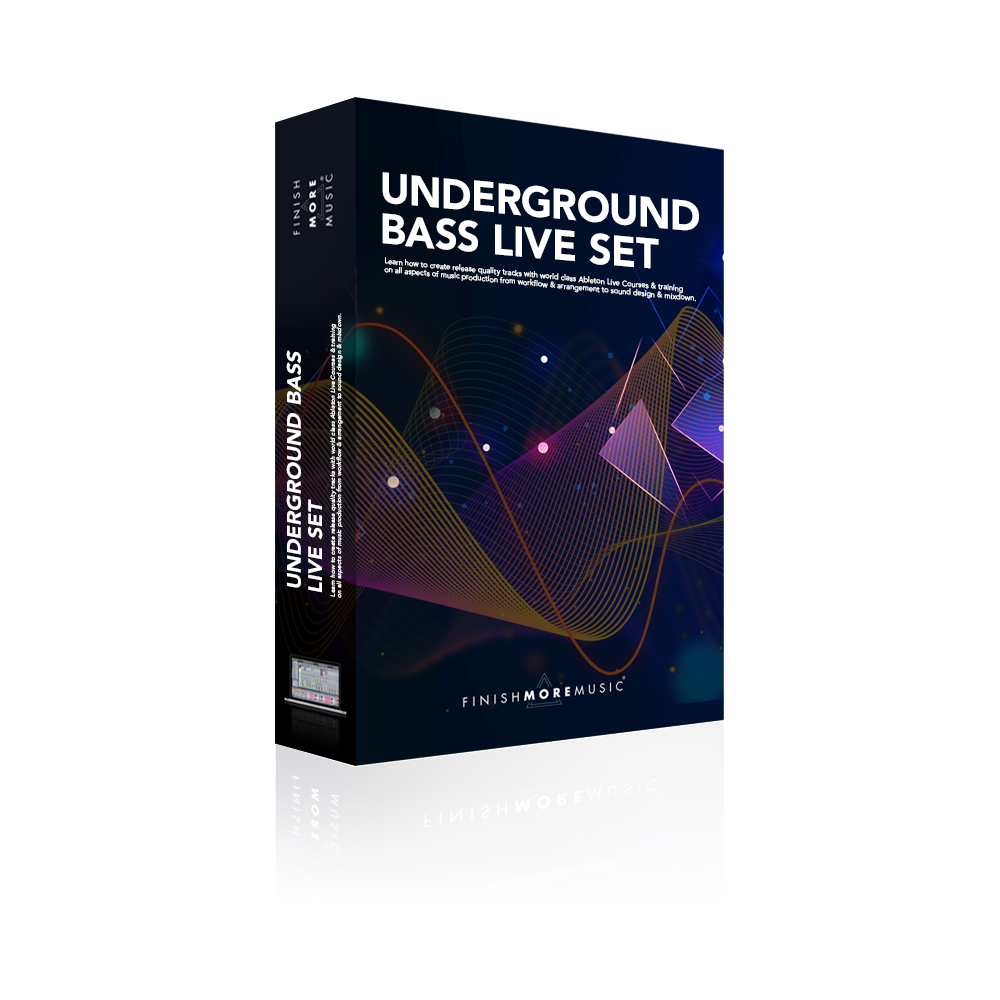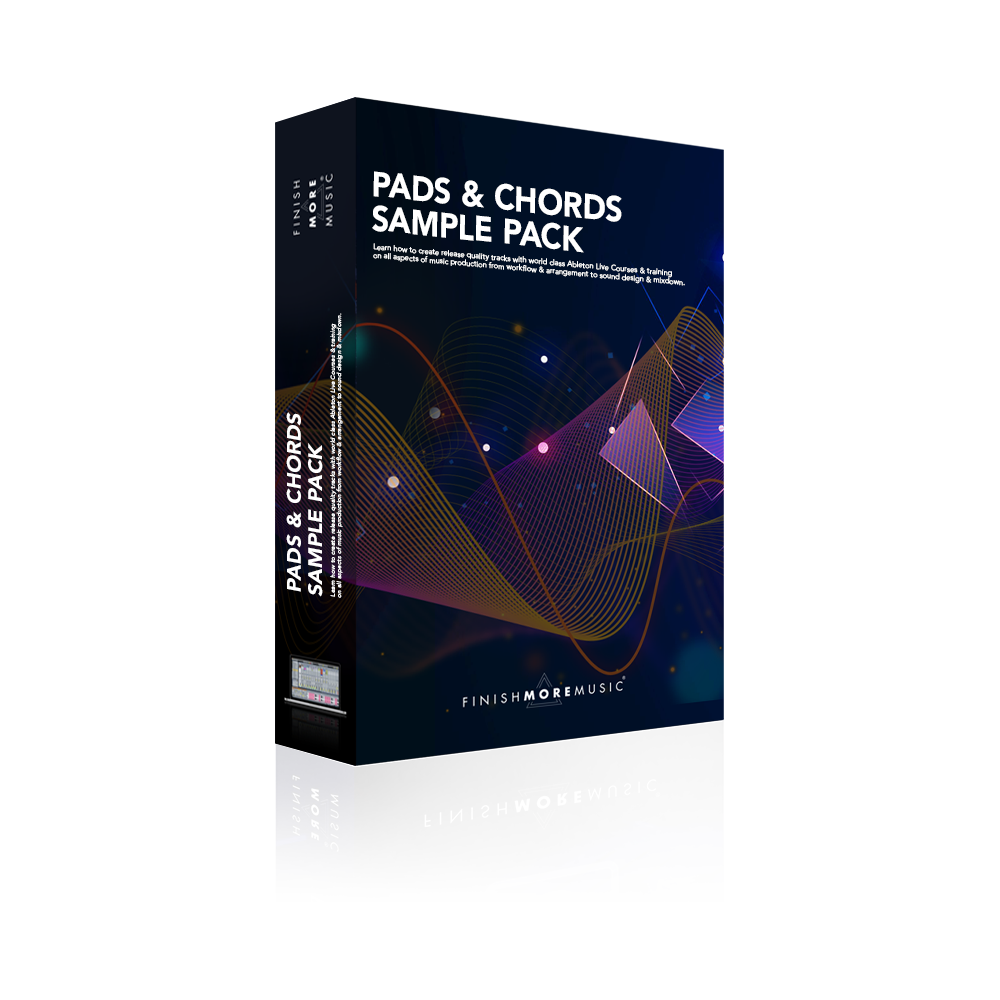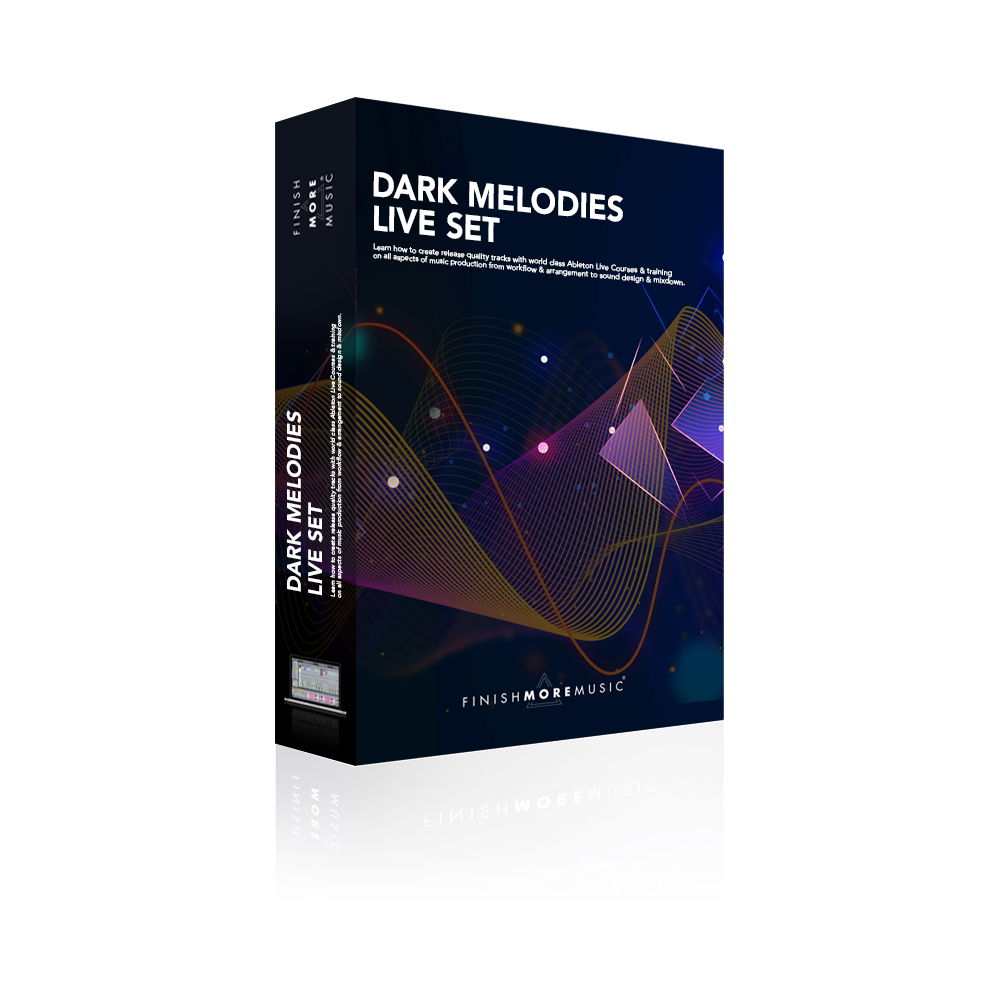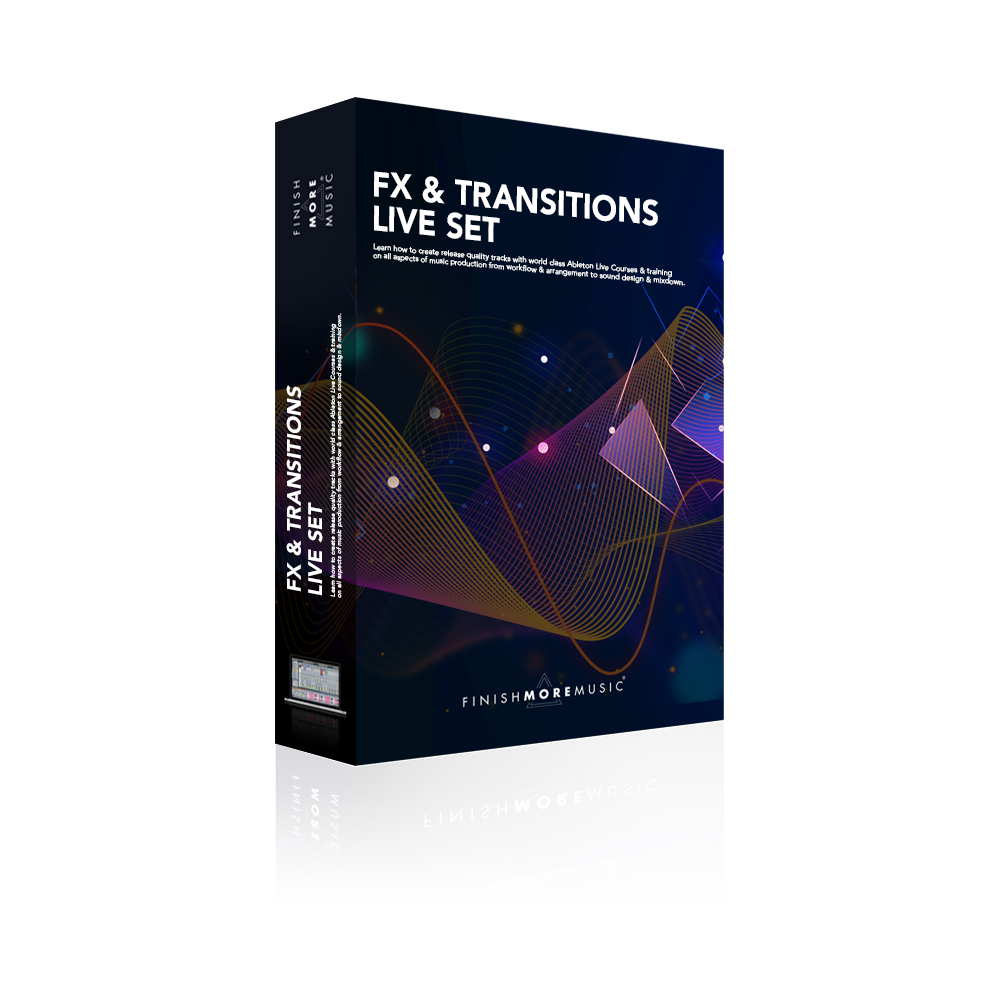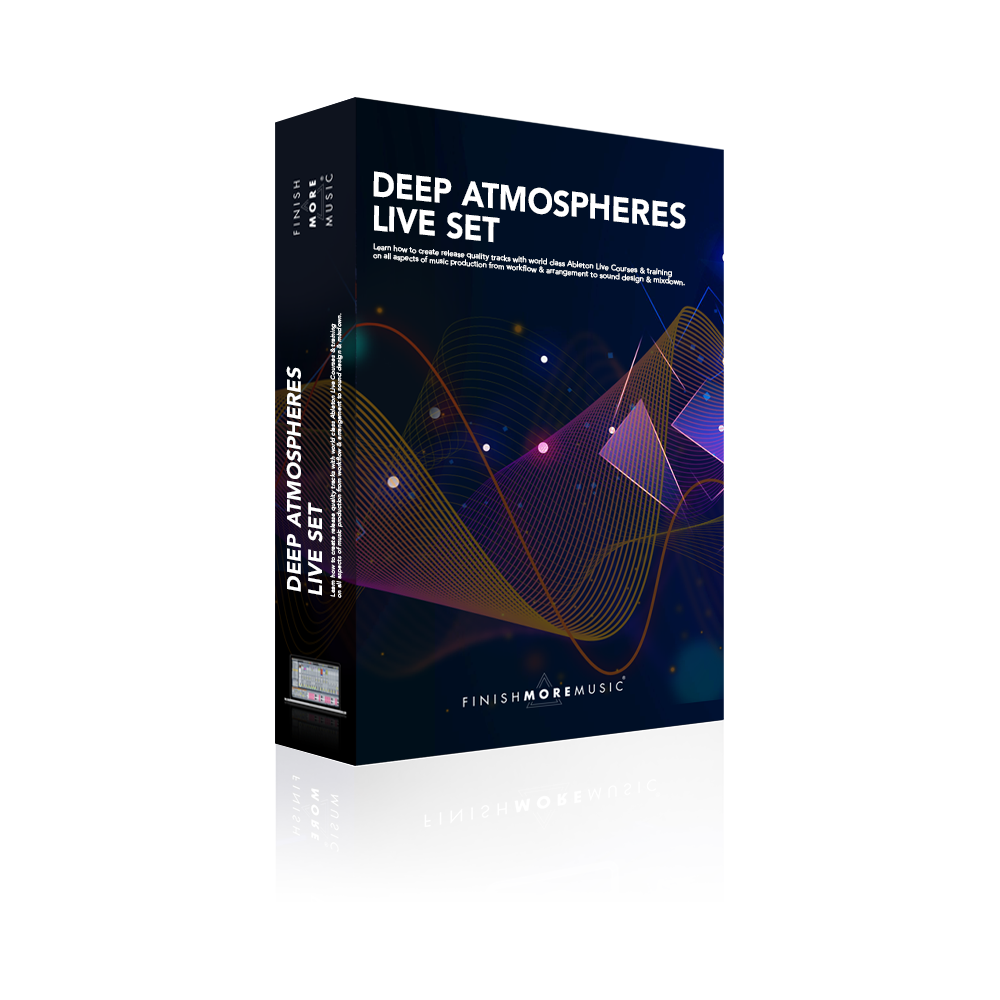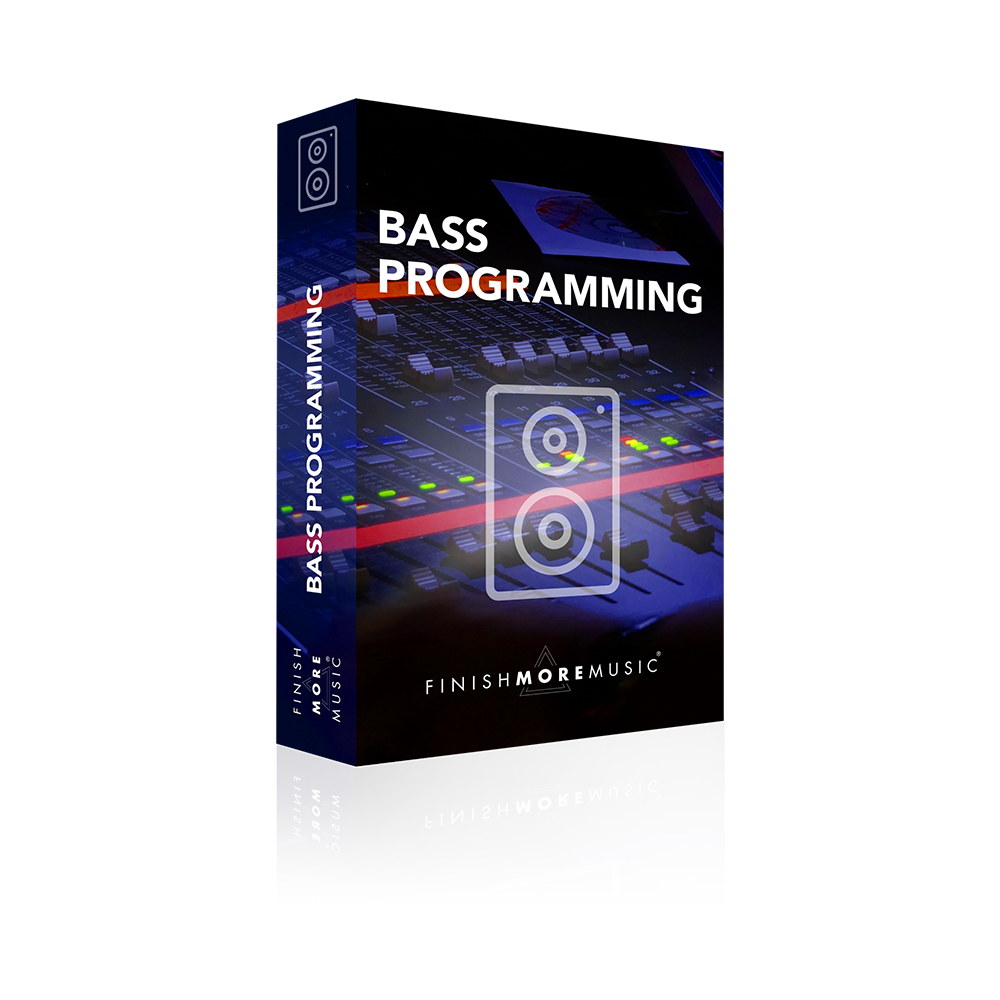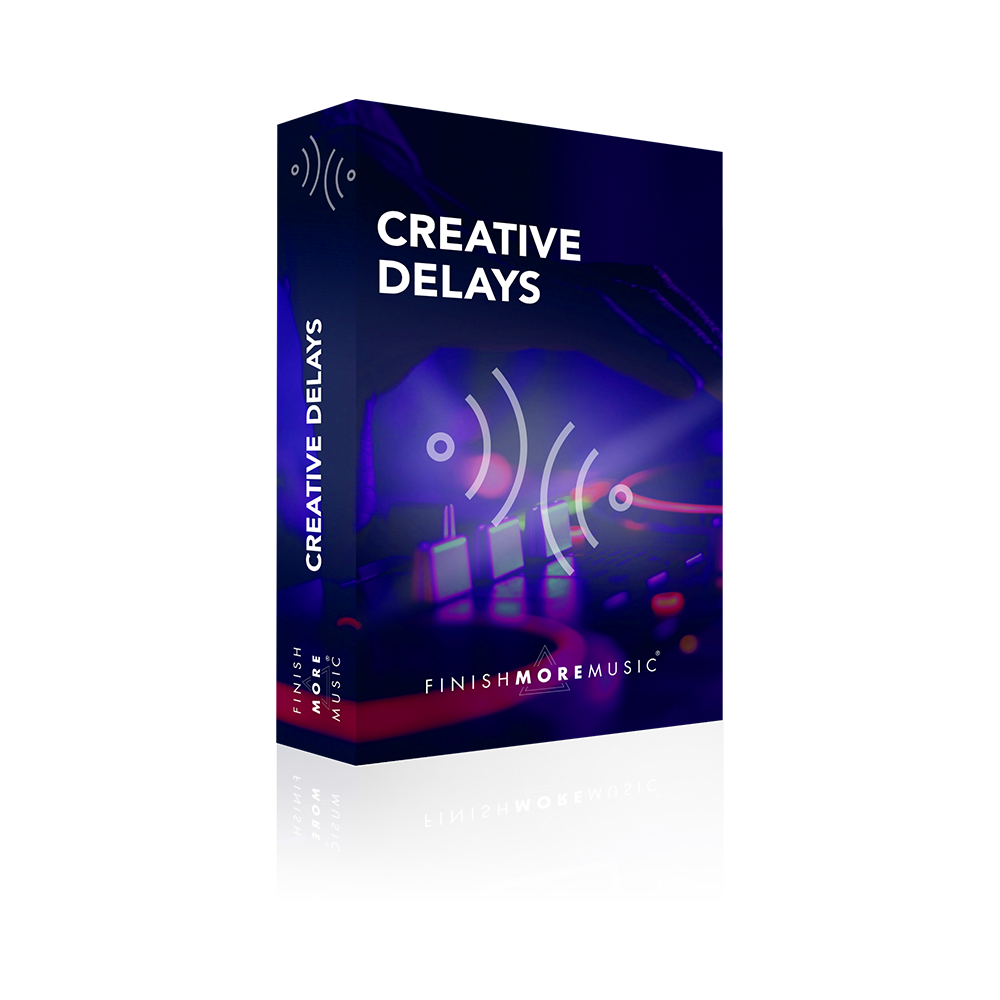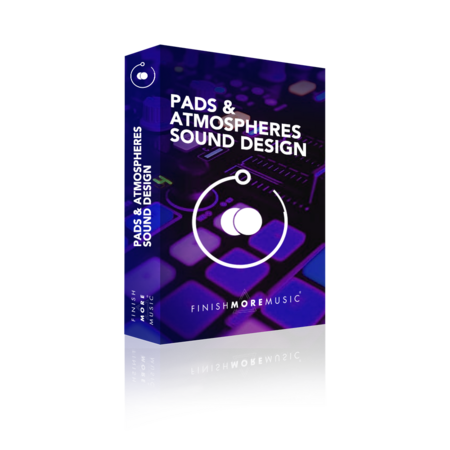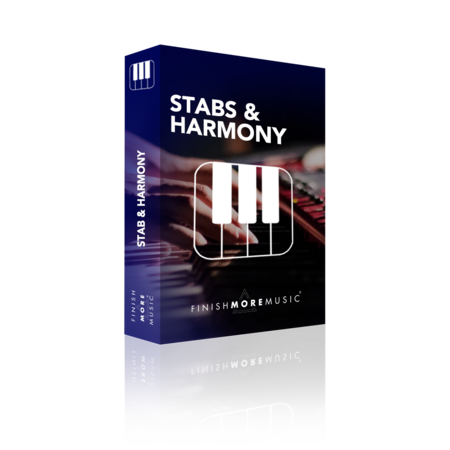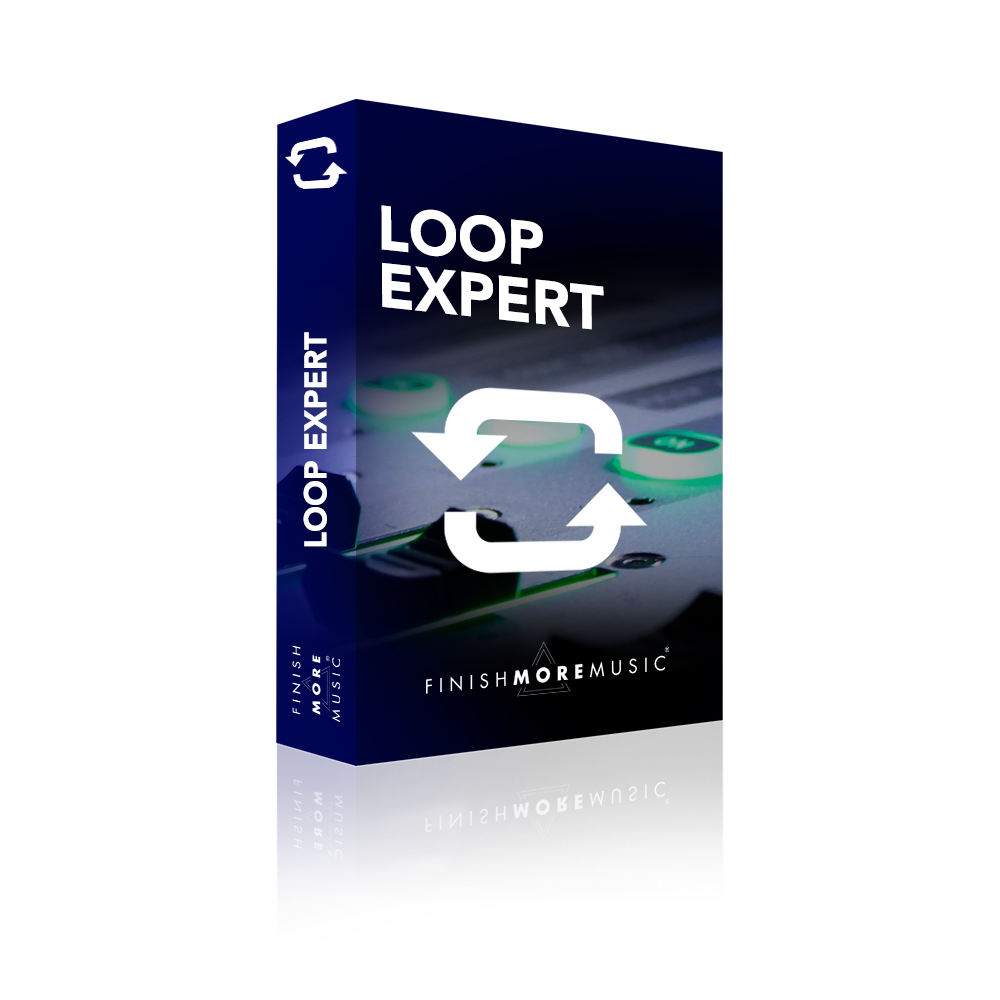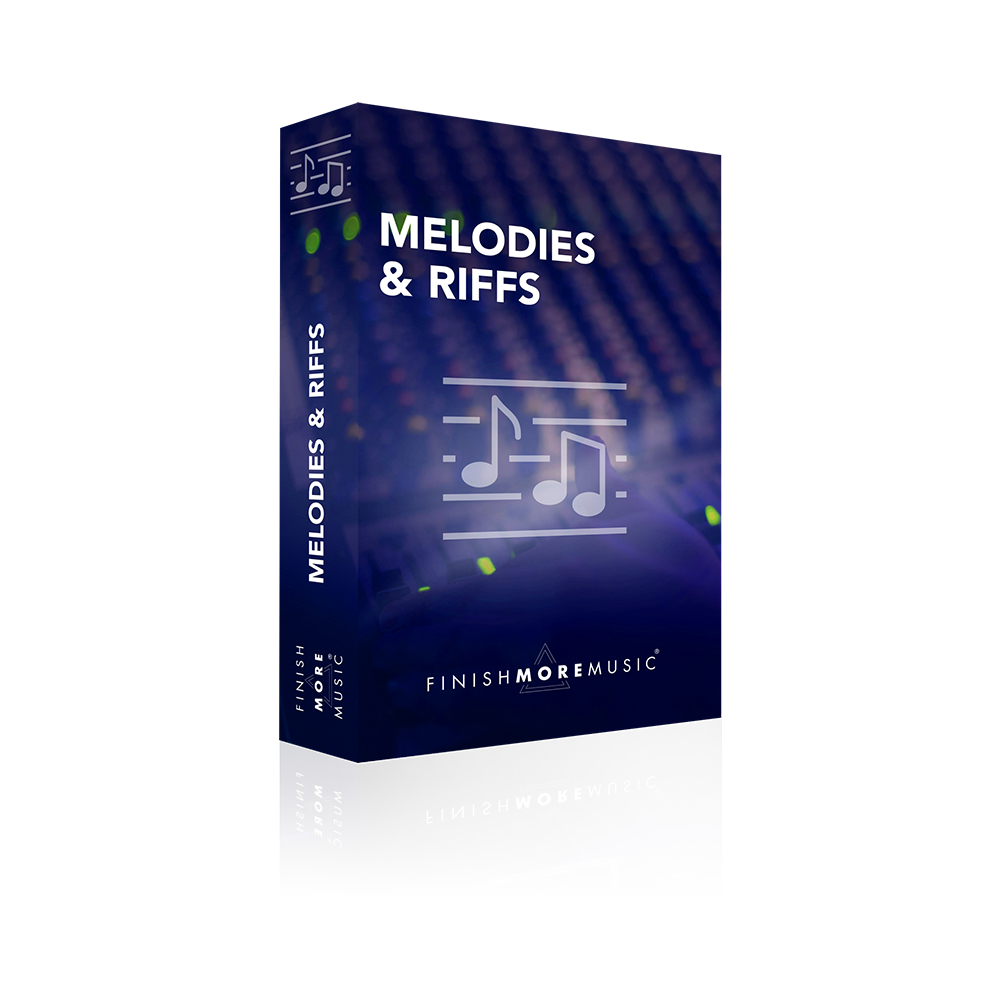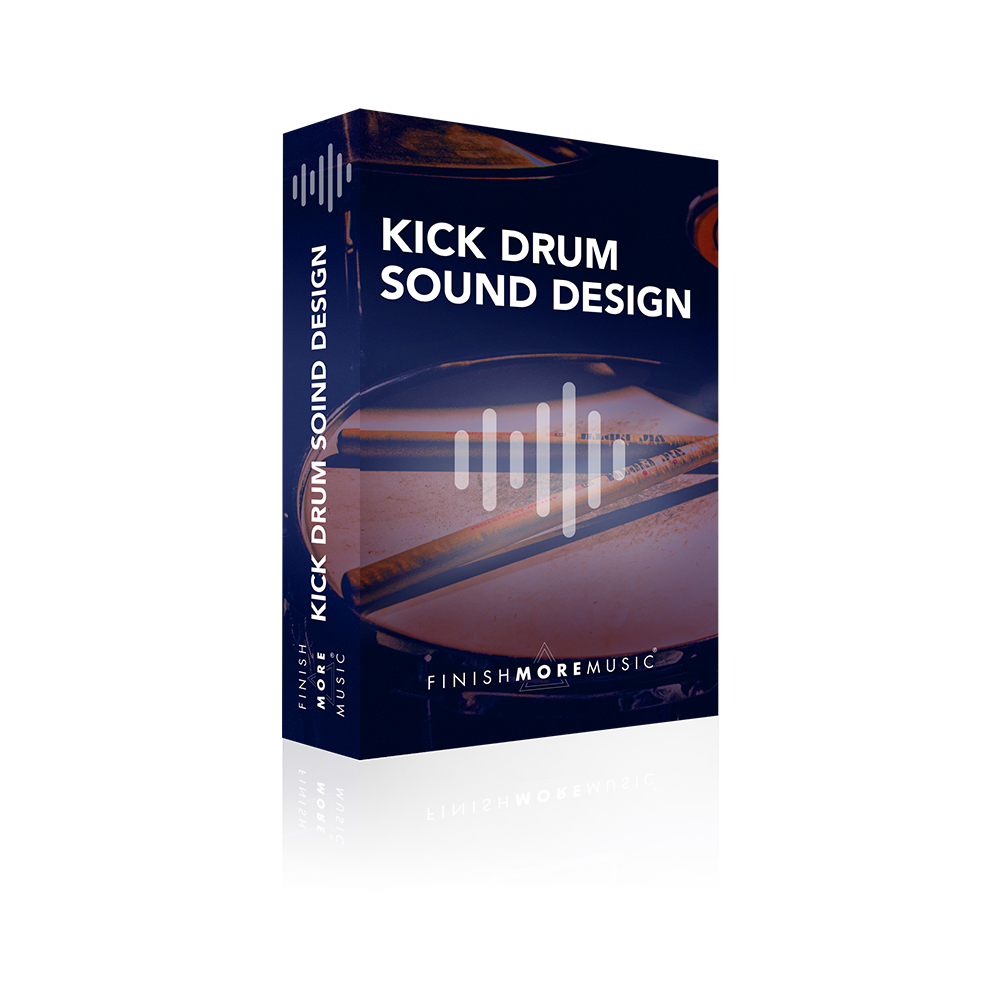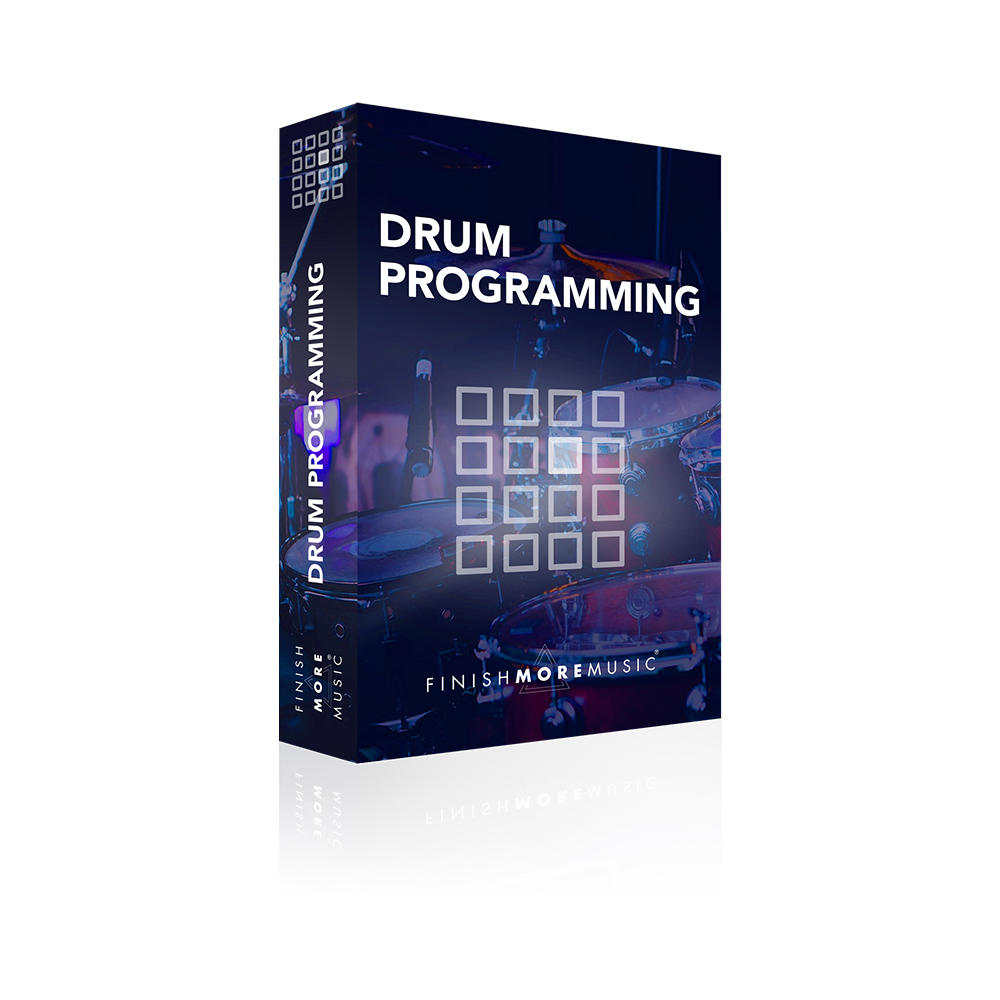Hi, I’m Keith Mills, and this is Episode number 71 of the Finish More Music podcast. And today we’re going to be talking about originality, or more precisely finding your own sound. Because nobody wants to be vanilla, to be a copycat, to be same old, same old, or indeed to be boring, or to be a second version of somebody else. How do you go about finding your own sound and standing out with your own identity? Well, it’s not actually the struggle you might think it is, it’s not that much work to do it, in fact it is one of the easiest things for you to pull off as a creative. How exactly do you go about it? Well, I’m going to pull back the curtains in this episode so let’s dive in.
This is the Finish More Music podcast, a show for underground dance music producers who want to finish more and better music and to share it with the world. My name is Keith Mills, and every week we’ll dive into the mindset and creative strategies that will help you to move further and faster along your music production journey.
Hello, and thank you for joining me on another episode of the Finish More Music podcast. I had a couple of days off this week and it never ceases to amaze me how I lack this inherent ability to realize when I need a damn rest. And I’m really making a concerted effort going forward to be a bit more cognizant of this.
You may be similar to me on this front, in that you work a lot, you’re a busy person, you’ve got a lot going on. I absolutely love what I do for a living. I’m incredibly fortunate, there’s not a day that goes by that I’m not showing gratitude and being thankful for the opportunity that I have and for the amazing people that I get to work with on their music as well. It’s huge, it’s incredible. But that doesn’t mean it doesn’t burn me out.
And I got to this point where I realized that I had the weekend and I’d pretty much just flopped around which is so not me, and I needed a couple of days off in the week. I needed to draw a line underneath it. And I think it’s so easy to think that you’re working and you’re putting the time in, and because you’re putting the time in you’re making big progress, when actually it can be so much better just to have a couple of days where you’re chilled out, you’re deliberately very intentionally resting or doing the things you love to get yourself back up to full productivity levels. And actually over the following couple of weeks, you’re going to get a hell of a lot more done than if you’ve kept trudging through the mud.
So I learned a few lessons doing it. I’m going to share them in an upcoming podcast with you. But it’s so, so important, this week what I’ve got coming up is massively, massively busy for me. To give you an example, two of the evenings I’ve got coaching calls in my high level mentoring group FMM+. Another one I’ve got a coaching call, an online call that is all about our label affiliation and dissecting tracks. Inside of Finish More Music, we have the opportunity for our members to release tracks on a whole raft of labels that we are working with. We’re now over 70 labels across multiple genres and they get the opportunity to get tracks released with them.
It’s the same deal. The label only signs the music if they like it, but we facilitate everything from the submission to the following-up, to fast turn-around times, getting feedback, and a beautifully searchable database with example music and all the different things about their distribution. There’s a load that we cover and we’re doing a live call on this where we’ll be doing a Q and A but we’ll also be analyzing and deep-diving into some of the labels.
I’ve got all of that going on and I’ve got rammed days, every single day is also full. It’s a lot, but I’m only going to be able to show up as the best version of myself because I took after myself, I looked after myself, sorry, for a couple of days. And actually I’m recording this podcast for you now on a Sunday, and I’m cool with that because this is something that lights me up and gives me that bit more energy anyway, but I wouldn’t have been able to do this if it wasn’t for those extra couple of days that are I just needed.
Maybe you’re hitting that wall. I wanted to put a flag in the ground for you just in case that’s you at the moment. And often we think, “Oh my God, I’m going to fall behind with stuff.” Or, “The world can’t possibly function without me for a couple of days.” And it’s rarely true, right? If you were to get ill, if you were to be poorly and you weren’t able to work life would go on and everything would be just fine. Taking a couple of days for yourself, if you’re feeling a bit burned out and you’re hitting the wall, absolutely go for it. As I said, I learned some great lessons so that will be in an upcoming podcast.
But I just wanted to put that out there for you right now in case you are someone like me and you’re going to find that valuable. It’s not what this episode is about. This episode is all about originality and finding your own sound. And it’s true to say that we all want our music or our creations, whatever they might be to be unique, to stand out, to stand for something. Nobody wants to be vanilla or seen as a copycat in any way, we want our art to have a piece of us in it and it to be unique and original in some way.
And it reminds me of this amazing quote and I’m sure it must have been adapted from something else historically but I absolutely love this. “I can’t understand why no one buys my music, it sounds exactly the same as everyone else’s.” What a great quote. “I can’t understand why no one buys my music, it sounds exactly the same as everyone else’s.” So true, right? So then the question becomes, well, how do you find your sound then? How do you stand out? How to have people saying, “Oh, that’s one of your tunes, I could tell straight away?”
Here’s my response to how you find your own sound. You don’t find your own sound, your own sound finds you. And that’s what we’re going to be diving into. I thought it’d be great to have a discussion around this because it’s important. If you try to force originality, you try to force a sound, then it’s not going to be authentic, it’s not going to be exactly what you love. That’s what authenticity is, what you love, right? And if it’s not authentic, then of course it can’t be your sound. And I think there’s a double whammy in this as well, because forcing something, I mean, just listen to the word the way that we’re putting that, forcing something. It’s not that pleasant and creativity is about play and exploration. So it’s forcing versus doing what you love.
Being authentic is doing what you love, what lights you up, what is exciting, forcing is the reverse of that. But also it’s a double whammy because you’re going to end up with something that’s not you. Forcing it is not the answer, going out deliberately to try and find my own sound and worrying about this which I know a lot of people do because I get a lot of questions. “Keith, how do I find my own sound? What have I got to do? What do I have to do to stand out?” It’s just on people’s mind and they’re deliberately trying to figure this out, and it’s not the answer. See, the deal is that if you’re brave and you follow your heart and you explore and you experiment then the byproduct of this, the natural outcome of this will be the discovery of your sound.
And I’ll flip that around because that is the only way I can find a fit, in a sense, the discovery of your sound. But like I said, you don’t find your sound, your sound finds you. It’s one of these situations where you’re minding your own business and then you just realize, “Ah, that kinda sounds like me.” Or more likely somebody else says, “I knew that was one of your tunes.” Or, “Your music’s really starting to sound like you.” It happens naturally, it’s more of a realization. I guess you can argue that you’ll just discover it one day, but it’s not through the process of deliberately forcing and cajoling and pulling your hair out trying to figure out a way to be original.
Let’s start at the top of this then, what does having your own sound really mean? Well, I think there’s a strong argument right there. It’s all been done before already and everything musically has been explored in some way. I think there are exceptions. There are things that maybe we can say these felt like perhaps defining moments. If you think about tech house, for example, which of course is the merging of techno and house but it was quite a fresh sound when it very first came on the scene. Drum and bass strikes out to me. Yes, it was the morphing and the changing and the evolution of breakbeat and hardcore that got us there, but it did feel fresh. It felt like there was a bit of a jump there. I think the same personally with dubstep. You might disagree, you might be thinking of other genres.
They were things that felt like quite big leaps but how rare are they? How rare are they? If what we’re saying is having your own sound means it’s something so fresh and unique, probably we’re on a hiding to nothing. Not only are we trying to force it but that absolute chance of finding something so original and unique is so slim, it is absolutely so slim and it’s not enjoyable. And it’s outcome-focused and outcome-focused is always an issue because it’s out of our control. You’d be super disappointed if it doesn’t happen, and if it’s highly unlikely to happen, well, we can see how this is pretty much worth this kind of direction to be going down.
Forcing stuff isn’t following your heart. It’s not authentic, it’s not you, it’s not self-discovery and therefore it also can’t be your sound. Because, let’s say you did discover something new and you were forcing it and you’ve somehow managed to come up with, I don’t know, Hungarian goat-step, modern jazz trance, whatever it might be. You come up with something new but you don’t like making it. Why have you forced it if you don’t like making it? Is that still your sound, something that you don’t even like making? You’re going to keep plugging away at this thing that you don’t like?
So forcing it can’t be the answer. And maybe I haven’t even properly answered the question, what is your own sound? Here’s a definition for you, my definition. It is when someone or you can clearly identify a track as being made by you. It doesn’t mean it’s strikingly different, it just means they can tell it’s made by you. I’ll give you a couple of examples from the Finish More Music community.
One that stands out to me is Mha Iri. If you haven’t checked out her podcast, we actually had two episodes back-to-back, it was such an epic podcast. She talks all about being a professional and stepping into the role as a professional producer and a professional DJ right now, before you’d actually be considered it, before it’s a full-time career, before you’re big news, acting like it right now and stepping into that role. Very, very powerful podcast. If you haven’t seen that scribble it down now you’re going to want to go back to it.
But Mha Iri, okay, she makes techno, awesome techno. Regularly charting in the top of the track charts, like against all of the big guns, she’s killing it, absolutely amazing. When I listen to one of her tracks I can tell. I’m like, “That’s a Mha Iri track.” Why? Well, she records her own vocals into often snippets and bits and pieces and it’s got a bit of a, what I would call a trance vibe and I hope that’s not going to be offending her in any way. And no, I don’t have anything against trance whatsoever, I cut my teeth and it’s one of my favorite music still to this day. But that’s my perception of it. It’s not strikingly different, it’s not vocal techno trance. It’s not a new genre, but it’s just got a thing. There’s something about it that’s Mha Iri and it’s a 100% authentic. It’s totally her, it’s what she loves making and what she loves doing.
Another one is Paul Lock. Again, brilliant, brilliant podcast if you haven’t checked it out. Particularly if you’re someone who’s busy, you maybe got a lot of commitments, young family, full-time job, and you have a belief that that means you can’t achieve the things you want. If that’s you, go back into the podcast archive and check out Paul Lock, amazing, amazing episode again. He makes deep disco music, and again, he’s releasing on all of the top labels in his genre. He’s right up there with every single one on the top labels, loads of remixes for people who were once his idols and then now his mates who he’s hanging out with all the time.
When I listen to his music there’s something about the bassline, there’s something about the drum programming that’s in there and I think something about his use of arpeggios. I can’t even quite put my finger on it and that’s the point, I don’t have to be able to. But when I listen to one of Paul Lock’s tracks, I know it’s one of Paul’s tunes. I could pick it out of 50 tracks by other producers, I’m pretty damn confident. But it’s not mind-blowingly different, it’s not so strikingly different that it’s a new genre or it’s someone’s discovered fire, it’s just Paul. It’s his journey, it’s what he’s discovered along the way.
I’ll give you one more. Let’s go outside of the community. Here we go superstar style we go to Sasha. Sasha has a lot of commonalities in a lot of his tracks. He uses a lot of these glitchy effects particularly on vocals. Often if there are vocals in a Sasha track it sounds like what he would do with vocals. I can often hear from the arrangement the way that he builds the track up before it gets to any main introduction of a thematic element or even the breakdown. And he often has this bassline, stabby baseline chord combo in a lot of his music.
Again, there’s not a new genre here. And if you’re a Sasha fan I’ll wager that’s just listening to my description, you’ll be like, “Yeah, I could absolutely hear the things that you’re saying and maybe you’ve got a whole bunch of other stuff as well.” It doesn’t have to be strikingly different, it just has to be you. So here you go, this is the big one. I’ve boiled this down into an equation for you. I’ve thought this down into the most simplistic, basic terms I can come up with.
Scribble this down and if you’re not able to, maybe you’re driving, you’re in the gym, out and about, whatever it is if you’re not able to scribble this down then just remember the number 071, because that’s the number of the podcast. finishmoremusic.com/071 will get you the show notes and I’ll have got all of this down for you so you don’t have to remember anything or be scribbling it down on the back of your hand or anything like that.
Here it is. Quantity plus authenticity equals your sound. Let me put that another way. If you are prolific and authentic then your sound will naturally occur, naturally occur as a byproduct of the quantity that you put out and the authenticity with which you approach your music, your production technique, the way that you show up for your creativity. I’ll break this down, let’s start with authentic, right? Authenticity. It means being real, it means being genuine, it means being true to you and it means doing what you love, what lights you up, what you’re passionate about. It is the exact opposite of forcing something, it is the exact opposite of copying someone.
Now let’s be clear, in art we are inspired by other people. We may copy little bits and pieces and take stuff, that’s cool. What I’m talking about is not the exact copy. We’ve probably all heard this famous quote, “Be yourself, everyone else is taken.” It’s something like that, right? The idea is you might borrow things and you’ll of course be inspired by lots of different stuff. But put that together how you would put it together, be yourself, everyone else is taken.
Let me give you some tips on how you might want to facilitate this. First up, listen to a wide range of music. It’s important to cast your net wide, it doesn’t all have to be dance music, okay? If you’re listening to this and most likely you’re an electronic music producer, there’s a whole world of electronic music to explore that doesn’t have to be dance music, and then of course there’s a whole world of music beyond our bubble. Explore, listen, step outside your comfort zone and check all types of different music out. Feed your muse and identify what you like about the music and what you don’t. And really importantly, ask yourself why? Be curious.
What is it I like about that? And things will fire off in your mind and you’re like, “You know what? I could take that thing from the them tuned to X film that I like. I could take that thing from…” I don’t know, “Some ambient track that I like. And I could introduce that into my style of music and see how I get on with it.” And that’s the idea of it, it’s not taking whole pieces of music that someone else has written.
It’s saying, what are the different characteristics? What are the things I like? Maybe you don’t even take the thing that they’ve got going on but there’s just something about it. You ask yourself why and you’re like, “Ah, yeah, that kind of rhythmic pattern that they’ve got on the chords, I’m going to bring more rhythmic patterns into my chords instead of just having loads of long sustained pads.”
Maybe it’s something that you haven’t used before. And you’re like, “Yeah, I’ll bring that in.” And it doesn’t matter if you haven’t heard anyone in the genre doing it before, what happens if you try it? It doesn’t matter if you don’t like it. Maybe you don’t like it but you’ll learn one thing. There’s something about it you do like that inspires you to move forward. Maybe you love the rolling basslines of techno music and maybe you like ambient stuff. You like the chords, you like the movement, maybe there’s a darkness about it. What is it that you like? What happens when you put them together?
And maybe you like tribal house? What happens if you take some of that tribal feel, some of that percussion and stick that in what are you going to get? Now, am I saying that no one’s done that before? No, I’m not. But if you like those things and you love those things you’re being authentic and I guarantee you this, how you put them together and how you interpret them and how this evolves over time for you will absolutely result in one day the realization that the way you approach music, your production process, the things you do and the sound that you’ve ended up with is going to be you. And it might just be a percent over here, a percent over there, a percent over here and it comes together, the way you process something. It could just be all these little bits and pieces and it will evolve into something that sounds like you.
Be an authentic, a massive part of that equation. And the other one is quantity. Heard this so many times before, right? Quantity over quality. Quantity, finish, finish, finish. The more you finish, of course the more you get to experiment and the more you’re going to learn about what you’re making, how you’re making it, what you’re hearing, the more you’re going to be able to discover. Of course, the more you finish, the more you learn, experiment, discover. And so when you’re trying different things you get to try more things. Try them more times. You’re going to learn a whole load more and this is going to work as you evolve step-by-step, by-step into your sound.
Great example of this. We had Roberto do a masterclass in Finish More Music. Fantastic producer, a very good friend of mine and he’s absolutely brilliant. And he said that it took him around two years of relentlessly writing music. And I’m pretty sure but don’t quote me on this because I might have this wrong but he said it was about 200 tracks or something like that in as well that he started to identify that there was some things that were very him in the music. Now, also he started out as a drum and bass producer but he just couldn’t quite get to grips with it. There are different aspects of writing drum and bass that he didn’t feel he excelled at and he was struggling and not enjoying it so much. But he realized that he loved rhythm. That was the thing that he really enjoyed.
And he thought, “Well, techno music’s got a load of rhythm in it. I quite like techno, I’ll have a crack at that.” Took to it like a duck to water, part of his journey. And interestingly in the masterclass he was breaking down how he works, very sample-based showing us how he puts all the samples in and all the things that he’s doing as well as his hardware stuff how he brings that in. And one of the things that he’s got a lot of is still drum and bass samples and he puts that into his techno.
Now, I would never have guessed. I would never have guessed listening to his music and go, “Oh, there’s some drum and bass samples in there.” But there are and it’s that 1-2% again. We’re into his journey, the things he loves, what lit him up, the amount of music that he created to get him there has resulted in a sound that again, you play me 100 different techno tracks, I’m pretty confident that I’d pick out Roberto’s tune out of all of them. I know his music, I know his sound. I’ve heard a lot of his tunes now and they’ve got these little things about them that make them Roberto tracks.
Another great masterclass, Chris Page, same deal. A couple of years before songs started to sound like his own. Quantity is absolutely key. If you want your own sound, if you want to be a highly skilled producer, if you want to release on top labels, you got to finish a lot of music. It is no coincidence that our community, that the content, the system, everything I teach is under the umbrella Finish More Music. Picked that name for a very specific reason, it is the key that opens the door to absolutely everything else.
Again, quantity plus authenticity equals your sound. If you are prolific, if you are authentic, if you make a lot of music, if you’re relentless about that and if you’re authentic about listening for the things that you like, about practicing the skills, the techniques, the processing that you enjoy, your sound is going to naturally occur for you.
I’ll go back to my quote again, okay? But I tell everybody who says to me, “Keith, I’m struggling with this. How do I find my sound? It’s really important to me to be able to have something that’s got a uniqueness about it that I make.” You don’t find your own sound, your own sound finds you. And here’s the great thing about this. You can file this under, “I don’t need to worry about it,” because it happens naturally. It is not a matter of trying to be original, it is simply a matter of doing what you love, writing loads of music and writing what excites you. Writing the music that turns you on in the way that you enjoy, in the way that lights you up. Do that and your sound is going to naturally appear and you’ll just realize it’s stepped up beside you one day.
I hope you’ve enjoyed the episode. I’d love to hear your thoughts on this, as always do hit me up on Instagram. DM me @iamkeithmills, I will always come back to you. And know it’s so funny I say this every episode and I still get people saying, “Oh my God, I didn’t expect you were going to reply.” I will always reply to every single message. I absolutely love hearing from you having conversations about this stuff. It lights me up, I’m super passionate about it. You’re not bugging me, you’re not taking my time unnecessarily, you’re not doing any of those things, I legitimately love hearing from you.
It’s @iamkeithmills, send me a direct message on Instagram. And as I mentioned previously, show notes for this, finishmoremusic.com/071. If you’re new to the show, make sure you hit subscribe on this as well so you’ll be notified as soon as the next episode comes out, you’ll always be kept in the loop. And I’d love to hear what you think about the show.
If you leave a review that would be absolutely amazing, it also helps other people to find the show. If you’re finding it valuable, if you think other people can benefit from diving into some of these topics and subjects with me, then hit the review button as well and scribble something and let me know how you’re finding the journey in the show. That’s all for me. Stay safe, I’ll speak to you next time and until then, happy music making.
If you’re serious about getting your music heard and climbing the ladder as a music producer, one of the skills you absolutely must master is remixing. That’s why I’ve put together a brand new completely free e-book for you called the Art of Remixing. It features the most prolific remixes from my Finish More Music community sharing their strategies for creating successful remix projects ready for you to share with the world.
So jump over to www.finishmoremusic.com/remix and download your free copy now. You’ll learn technical setups for creating your remix, how to add your own flair whilst respecting the original artist’s track, how to create quickly to a tight deadline, how to extract melodies and harmonies. And so much more. As well as taking the opportunity to get more of your creative output into the world, remixing is an amazing tool for building connections with other artists and strengthening your relationship with label owners.
In short, remixing is essential. Try to think of a top-level producer who doesn’t have a bunch of great remixes to their name. You can’t, right? Make sure you master the art of remixing so that when your opportunity comes you’re ready to take it with both hands and accelerate your growth in the music industry. The e-book is totally free, so dive over now to www.finishmoremusic.com/remix and grab your copy. See you in the next episode.
